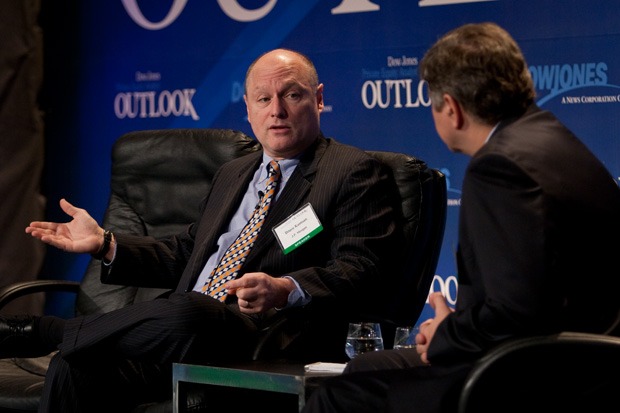Is the global economy teetering on the edge?
When it comes to the state of the global economy, a colossal question mark looms over us all. With a deeply tumultuous and volatile set of events having reared its head in recent years, it’s hard not to feel deeply uncertain about what the future portends.
Enter Bruce Kasman! He’s the Global Head of Economic Research and a Chief Economist at JP Morgan – with experience at the Federal Reserve and Morgan Stanley prior to that.
As part of a speaker event organised by Warwick Economics Summit (WES), students were fortunate enough to hear Kasman speak on campus on 24 January. Having lugged over three decades’ worth of economic expertise across the Atlantic from his hometown – New York City – to the UK, he shared his insights on everything from global economic trends to the intricacies of his day-to-day job.
Prior to the talk, The Boar attended a ‘Meet the Speaker’ session organised by WES. This involved an intimate yet informal hour-long conversation between Kasman and roughly 10 students, where he answered questions relating to a wide range of topics. The discussions revolved around everything from details of Kasman’s day-to-day life to his prognosis for China’s ailing economy.
One key aspect of Kasman’s role is macroeconomic forecasting. It’s an area where he’s developed particular renown, with the economics team at JP Morgan that he leads being deemed the “Best Global Forecaster” twice in a row by Bloomberg. Given the multiplicity of moving parts that is the global economy makes forecasting incredibly difficult, The Boar asked Kasman about how to get it right.
He noted that economic forecasts must have a clear narrative and conceptual framework. Beyond this, he highlighted the fallibility of forecasts, suggesting that the “one thing about forecasts is that they’re wrong”. This is why robust communication and transparency from forecasters is essential. Kasman pointed out that his team’s forecasts typically encompass a wide range of indicators, and as such he’s always explicit to clients as to which indicators he feels he can confidently predict. He also discussed his and JP Morgan’s heavy emphasis on pluralism, noting that he seeks to integrate perspectives from across the globe, facilitating cross-country conversations within his global economics team that allow people to learn from each other.
Moving on to the talk, Kasman argued the global economy was on a knife-edge, with potential outcomes for it being grouped into two broad categories
Moving on to the talk, Kasman argued the global economy was on a knife-edge, with potential outcomes for it being grouped into two broad categories: a ‘soft landing’, where the global economy continues to grow whilst inflation falls back to target, and a ‘boil the frog’ scenario, where the prolonged, tight monetary policy that central banks have maintained since late-2021 drives the global economy into a recession. He argued these outcomes were equally likely, with a 15% chance that the global economy could shrink as early as the first half of 2024, leading to falling incomes and employment.
Yet despite protracted monetary tightening, Kasman suggested the global economy currently remains resilient – even though there is the prospect of trouble down the line. He attributed this to the easing of post-pandemic supply chain disruptions, alongside the fact that prices for commodities such as natural gas and wheat, which surged following the war in Ukraine, fell in 2023. That being said, this resilience has diverged across regions. Whilst consumer spending in Europe is stagnant, and manufacturing output in countries such as France and Germany is still lower than it was before the pandemic, American households have seen their incomes and wealth rise rapidly, in large part due to the expansive fiscal stimulus packages implemented in the latter. Asian economies have also performed broadly well, in large part due to their growing tech sectors.
Crucially, Kasman unveiled a wildcard prediction: he expects that inflation will be “sticky”, failing to return to the 2% target in 2024 as many other forecasters are anticipating. Because supply chains and commodity prices have already normalised, further reductions in inflation stemming from goods prices are unlikely. On the other hand, tight labour markets in America and Europe, resulting from low unemployment rates, have facilitated strong wage growth that makes it difficult to achieve reductions in services price inflation.
Kasman’s address was followed by a Q&A session where he answered questions about everything from public debt burdens to the interlinkage between the global economy and global politics.
And with that, an incredibly intellectually stimulating and insightful event wrapped up. I left the event feeling more clear-headed about the state of the global economy, but also more motivated than ever to delve deeper into the cogs that comprise it. All in all, it was a real pleasure – and with similar events set to be hosted by WES in the weeks and months ahead, I can’t wait to be back.

Comments (2)
Thank you for sharing. I believe the issues surrounding the global economy are something everyone needs to pay attention to.
Thanks for sharing student perspectives in this article.